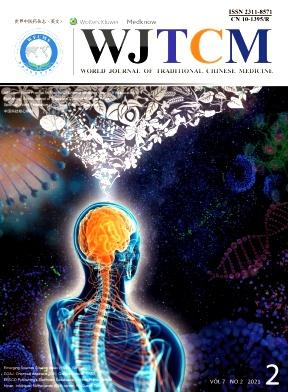从荨麻疹中鉴定SARS-CoV-2刺突蛋白抑制剂以开发抗COVID-19的草药疗法
IF 4.3
3区 医学
Q1 INTEGRATIVE & COMPLEMENTARY MEDICINE
引用次数: 1
摘要
目的:SARS-CoV-2的高传播率和突变性使其成为全球大流行,缺乏任何有效的临床治疗方法造成了这样的骚动。有一些合成抗病毒药物,如瑞德西韦和洛匹那韦,正被重新用于治疗SARS-CoV-2,但所有这些药物对人类都有极端的副作用。因此,促进以草药为基础的药物开发变得至关重要,因为它们具有成本效益,副作用较小或没有副作用。杜鹃花在喜马拉雅地区是丰富的,其所含的化合物显示出显著的抗病毒和抗sars活性。因此,我们进行了分子对接研究,以鉴定来自美国薯蓣的SARS-CoV-2刺突蛋白抑制剂,以对抗COVID-19疾病。材料与方法:利用生物信息学方法从双叶假单胞中筛选化合物,并与新冠病毒刺突蛋白(PDB ID: 6YOR)的S1亚基对接。使用PyRx软件(0.8版本)进行分子对接,并使用Discovery Studio Visualizer进行进一步检测。结果:与对照的磷酸氯喹相比,几乎所有选定的化合物都显示出显著的结合能(例如,β -谷甾醇:−10.3千卡/摩尔)。观察到这种结合与旧菌株和传染性更强的新修饰的SARS-CoV-2 B.1.1.7菌株中常见的刺突蛋白残基结合。结论:本研究可用于SARS-CoV-2及其突变株的有效药物开发。本文章由计算机程序翻译,如有差异,请以英文原文为准。
Identification of SARS-CoV-2 spike protein inhibitors from Urtica dioica to develop herbal-based therapeutics against COVID-19
Objective: The high transmission rate and mutations of SARS-CoV-2 have made it a global pandemic, and the shortage of any effective clinical treatment has created such a commotion. There are some synthetic antiviral drugs, such as remdesivir and lopinavir that are being repurposed to treat SARS-CoV-2, but all of these demonstrate extreme side effects in humans. Hence, promoting herbal-based drug development has become crucial as they are cost-effective and have lesser or no side effects. Urtica dioica is abundant in the Himalayan region and the compounds present in it have shown significant antiviral and anti-SARS activity. Therefore, molecular docking studies were performed to identify SARS-CoV-2 spike protein inhibitors from U. dioica to combat the COVID-19 disease. Materials and Methods: Compounds from U. dioica were screened using the bioinformatic approach, and subsequently, these compounds were docked with the S1 subunit of the COVID-19 spike protein (PDB ID: 6YOR). Molecular docking was carried out using the PyRx software (0.8 version) and further examined by employing the Discovery Studio Visualizer. Results: About all the selected compounds showed significant binding energy (e.g., beta-sitosterol: −10.3 kcal/mol) in contrast to the control chloroquine phosphate. This binding was observed with the spike protein residues that were common in the old strain and the more contagious newly modified B.1.1.7 strain of SARS-CoV-2. Conclusions: Thus, our study can be used in effective drug development against SARS-CoV-2 and its mutant strains also.
求助全文
通过发布文献求助,成功后即可免费获取论文全文。
去求助
来源期刊

World Journal of Traditional Chinese Medicine
Medicine-Complementary and Alternative Medicine
CiteScore
5.40
自引率
2.30%
发文量
259
审稿时长
24 weeks
 求助内容:
求助内容: 应助结果提醒方式:
应助结果提醒方式:


